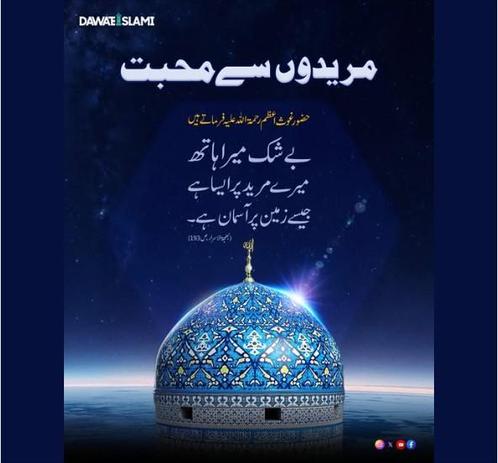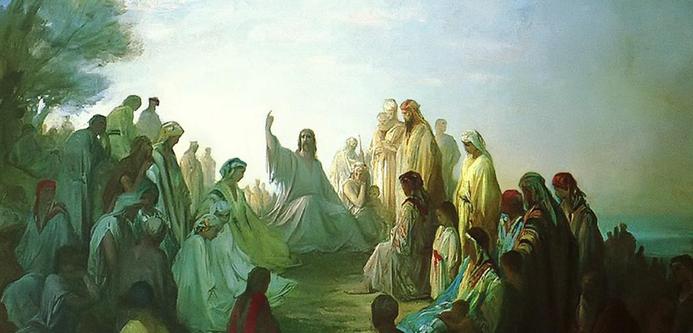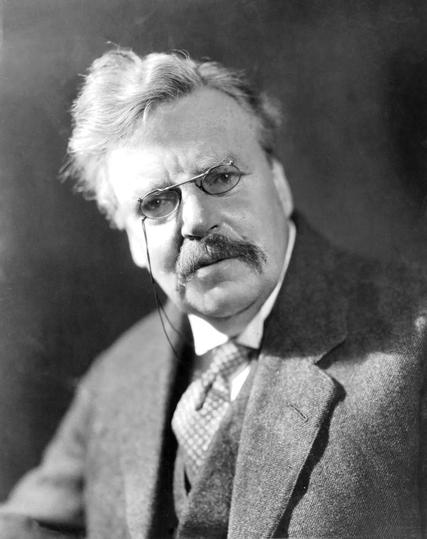Being Divine Salt and Light
“‘Dear Lord God, I wish to preach in your honor. I wish to speak about you, glorify you, praise your name. Although I can’t do this well of myself, I pray that you may make it good.’”[i]
Matthew 5:13-20
After promising his disciples that they will be persecuted, Jesus immediately adds,
You, you are the salt of the earth; but if the salt loses savor, by what will it be made salty? It is yet worth nothing if not to be tread down under people after being thrown out. You, you are the light of the cosmos. A city situated on a hill is not able to be hidden. No one kindles a lamp and places it under a basket but upon the lampstand, and it shines for all who are in the house. In this way, let your light your light shine before humanity… (vv13-16a).
Keeping in mind that Jesus hasn’t had a week off between his last statement and this one like we have, these verses are a corresponding instructional[ii] product of his promise to the disciples that they will be persecuted and the other blessed statements. The disciples are expected to participate and continue the work of Christ, which is both salt and light in the world. Thus, the disciples will also be light and salt in the world because they will—by faith and the presence of the (coming) Holy Spirit—continue God’s work revealed/made tangible in Christ.[iii] Because of their identity with Christ, because of their faith in him, because of their union with God through the Holy Spirit, the disciples won’t be able to be anything else but salt and light in the world…just like the prophets before them—caught up in the divine pathos. So it happens with those God calls to be disciples (prophets).[iv] Jesus exhorts the disciples: go and be lights, go and be salt; btdubs, you haven’t a choice in the matter (you are salt and you are a light hanging form a lampstand for all to see, not by your own doing but by God’s). And this will bring both wanted and unwanted attention, thus the previous statement about being persecuted.
Thus, the negative statements in these verses are not so much a curse (e.g. be salt or else!), but a practical statement of an either/or situation: salt salts or it doesn’t, when it doesn’t it’s thrown out and trampled; a light lights or it doesn’t, when it doesn’t it doesn’t help anyone. Jesus is setting up a practical if/then: those who are salt and light are those who are called by God to participate in the divine mission of God’s revolution of love, life, and liberation;[v] they are to help the birthing of the reign of God amid the kingdom of humanity (which, by the way, will bring attention and persecution). A world that is void of divine justice, is a world that is awful to live in; the disciples are to bring the salt to make this world a better place to live in; they are to be the light that exposes human injustice and draws people unto the truth of God’s reign and justice.[vi]
But here is an important point: all of this is done by God’s power and presence in and with them. The disciples are not mustering up their saltiness and lightyness of their own free will and choice; they’re being used to salt and to light (they are these things). Without the divine calling (“come and follow me”), without this divine power (baptism of water and Spirit), without the incarnate Word (the gospel[vii]), one can’t be the salt or light of which Jesus speaks—not unlike when the words of a false prophet fall to the ground (there to be trampled upon, words that do not expose and bring to God).
Jesus continues, that your good works might be perceived and might esteem your Father who is in the heavens (v16b). It’s as if the light that they have by faith in Christ and the presence of the Holy Spirit will illuminate (for all to see) their being the salt of the earth.[viii] To be salt of the earth is to cause the earth to be savory (tasty;[ix] thus good and well-pleasing) and also to preserve it so it doesn’t rot[x] and become corrupt(ed) (two uses common to the historical context[xi]). To be salt is to be active in the world to the benefit of others[xii] (being unsalty in the world is like being nothing).[xiii] And it’s the light that shines through them that will expose them as salt to the benefit to the neighbor and the entire cosmos; Jesus’s scope of the disciples saltiness and lightyness, according to Matthew, is all encompassing; it’s massive.[xiv] The salt and light born of faith is loving deeds;[xv] those who love, those who participate in bringing life, those who hunger and thirst for liberation from captivity (for others and not only for themselves), are the salt and light making the world better, more enjoyable, a place that not only sustains but causes life to thrive (for both salt and light are necessary for such conditions of grown and thrive[xvi]). And the depth and breadth of their loving (faithful) activity is a (divine intended) result of being members of the blessed ones just mentioned; like Abraham and Sarah and their family, the disciples are a blessing to be a (public[xvii]) blessing to others and the world.[xviii] In this way, God’s name will be esteemed because of the disciples[xix] (a fulfillment of the petition in the Lord’s prayer to come, let your name be hallowed!).
Thus, Jesus continues to speak of the law and of righteousness (justice),
Do not consider that I came to destroy the law or the prophets; I came not to destroy but to complete. For, truly, I say to you, until heaven and earth might pass away, one iota or one distinguishing point will not at all pass away from the law until all might come into being. … For I say unto you, if your justice is not over and above, much greater than the scribes and pharisees, you might not at all enter into the kingdom of the heavens (vv17-20).
Jesus completes or fulfills the law and the prophets by being the substance of the promise, in doing what is expected therein, and embodying the heart of the law and not just the words; [xx],[xxi] rather than discard or destroy, he takes up into his being even the smallest strokes of the law (the iotas and distinguishing points).[xxii] Jesus is bringing into being that which the law and the prophets have been pointing to; “carry[ing] them into a new era of completion.”[xxiii] He does so through his orientation in the world that is the product of God’s love for humanity (for God so loved the cosmos…); the law was to be a tool used to structure fractured human love. However, the scribes and Pharisees often missed this component paying attention (instead) to the rubric of the law, the acting out of the words of the law rather than the intent, the “weightier matters” of the law.[xxiv] Thus the law has gone “undone” or not completed; Jesus is here to do such doing and completing. Jesus expects his disciples to participate in this doing and completing, too. How? By being one of the blessed ones, by being the salt and light of the world, by being his followers in the world now (while he is here) and (especially!) after he leaves; by being those who publicly live out what he taught and lived out.[xxv] It is in this way (Jesus’s way[xxvi]) that their righteousness (their Christ defined divine justice) will exceed the righteousness of the scribes and Pharisees (human defined justice). It’s not about doing the law better and harder than the scribes and Pharisees;[xxvii] it’s about doing it the way Jesus did it:[xxviii] by faith working itself out in loving deeds for the wellbeing of the neighbor and the world to God’s glory.[xxix]
Conclusion
The good and not so nice expectations offered in the first part of Matthew’s Sermon on the Mount, give way to the why…why do the disciples need to be concerned with identifying with the poor and those who mourn, being gentle, seeking and desiring justice in the world, being merciful and clear of heart, having an eye to making peace that surpasses understanding, and preparing for being persecuted? Because this is how they add life-sustaining flavor to the world and preserve it from decay; because this is how they become the light shining the light of Christ into the world, ushering everything it touches into the divine presence.
The beatitudes are not a personal pursuit of individual and autonomous righteousness, a means to a self-centered end. In post-modern America, we—each of us—want to know—before endeavoring to participate in a plan, offering a solution to a problem, fulfilling a request, or doing a task—what’s in it for me? We want to know how we will benefit from our investment (whatever form it takes). But what Jesus laid out in the beatitudes and solidifies here in this portion of chapter five is that our reward lies in being found in and participating with the reign of God that is meant not only to bring glory to God but to also bring well-being to the neighbor. Not our own happy state and satisfaction is in mind here; being so oriented is antithetical, according to Matthew, to the goal of the proclamation of the gospel. As disciples of Christ, those who follow Jesus out of the Jordan, we are to put ourselves aside (not deny ourselves as if we didn’t exist) and to intentionally put the needs of the neighbor first (which is exactly what God does in Christ). It is through this other-orientation that disciples are recognized as the salty salt of the earth and the lighty light of the whole world; and this goal—becoming the salt and light of the world—is precisely the goal of the law and the prophets, it is the goal of our encounter with God in Christ, it is the goal of our faith eager to work itself out in loving deeds.
In other words, Beloved, we are blessed to be a blessing; we are loved to be love, to be salt, to be light in the world bringing everything and everyone whom we touch and encounter into the life giving, loving, and liberating encounter with Godself in Christ by the power of the Holy Spirit.
[i] LW 54:157-158; Table Talk 1590.
[ii] Anna Case-Winters Matthew Belief: A Theological Commentary on the Bible Eds Amy Plantinga Pauw and William C. Placher (Louisville: WJK, 2015), 78. Moving into the instructional portion of the sermon on the mount
[iii] Case-Winters, Matthew, 78-79. “It is prefaced with ‘salt and light’ sayings addressed to the disciples in a way that points them toward their mission in the world. Neither salt nor light exists for its own sake. The salt needs to stay salty to fulfill its function and the light needs to be lifted up to give light.”
[iv] . T. France The Gospel of Matthew The New International Commentary on the New Testament. Gen. Ed Joel B. Green (Grand Rapids: Eerdmans, 2007), 175. “Here the light which Jesus brings is also provided by his disciples, who will soon be commissioned to share in his ministry of proclamation and deliverance.”
[v] Ernesto Cardenal, The Gospel in Solentiname, translated by Donald D. Walsh (Eugene: Wipf & Stock, 2010), 94. “Julio: ‘By liberating it. Because a world filled with injustice is tasteless. Mainly for the poor, life like that has no taste.’”
[vi] Cardenal, Solentiname, 94. “Elvis: ‘…Christians don’t have that Christian taste. They’re simpleminded, insipid. Only the ones who are struggling for a just society are the ones who have that taste of salt.’”
[vii] Cardenal, Solentiname, 95. “Marcelino: ‘I think that “salt” is the Gospel word given to us so that we’ll practice it and pass it on to others, practicing love, so that everybody will have it. Because salt is thing that you never deny to anybody.’”
[viii] France, Matthew, 177. “The metaphor of v. 15 is now explained more prosaically, with the ‘light’ shed by disciples interpreted as the good that they do.”
[ix] Cardenal, Solentiname, 94. “Adan: ‘It seems to me its because every meal should have salt. A meal without salt has no taste. We must give taste to the world.’”
[x] Cardenal, Solentiname, 94. “And Doña Adela, a little old woman with a weak voice: ‘We are the salt of the world because we have been placed in it so the world won’t rot.’”
[xi] France, Matthew, 174. “The two most significant uses of salt in the ancient world were for flavoring and for the preservation of food, and either or both of those uses would provide an appropriate sense here: the disciples are to provide flavor to the world the live in …and/or they are to help to prevent its corruption.”
[xii] Case-Winters, Matthew, 79. “These metaphors imply a turning outward toward mission in the world. The impact of the followers of Jesus upon others is part of the message here. Something good and desirable is given that will cause them to give glory to God.”
[xiii] Case-Winters, Matthew, 79. “These metaphors imply a turning outward toward mission in the world. The impact of the followers of Jesus upon others is part of the message here. Something good and desirable is given that will cause them to give glory to God.”
[xiv] Case-Winters, Matthew, 79. “The scope of this blessing is the widest possible…”
[xv] Cardenal, Solentiname, 95-96. “Felix Mayorga: ‘Maybe the light is the good people, who practice love. Everyone that has a good spirit and loves others, he is the light of the world.’”
[xvi] France, Matthew, 173. “Sir 39:26 lists salt as one of the essentials for human life…’The world cannot endure without salt.’ Disciples are no less essential to the well-being of ‘the earth,’ which here refers to human life in general.’”
[xvii] Case-Winters, Matthew, 79. “The community of disciples cannot be a closed community, an ‘introverted secrete society shielding itself from the world.’ Its witness is public.”
[xviii] Case-Winters, Matthew, 79. “The universal scope of divine blessing through the people of God is consistent with the theme in Hebrew Scriptures of ‘blessed in order to be a blessing’ (Gen. 12:2; 22:80) and called to be a ‘light to the nations’ (Isa. 2:2-5, 42:6; 49:6).”
[xix] Case-Winters, Matthew, 79. “The gifts/functions of salt and light are not self-contained; they are meant to be shaken out and shining forth. Followers of Jesus need to be salty and we have to shine. Are we ‘salt of the earth’ kind of people? Are we ‘shining examples’ of God’s light in the world? Do people have cause to praise God (v. 16) because of us?”
[xx] Case-Winters, Matthew, 79-80. “Jesus’ fulfilling the law and the prophets can have several dimensions of meaning:
- That Jesus brings into being what the law and prophets promised. Reference to the fulfilling of the law is often made just before Matthew quotes something from the Hebrew Bible.
- That Jesus himself does what the law and prophets in fact require of us. His life is molded by the law, and it defines his vocation and the conduct of his life.
- The Jesus teaches and lives the deeper meaning of the law, which is best understood in terms of the love command on which ‘hang all the law and the prophets’ (22:450). All the laws concerning tithing, ritual purity, and Sabbath observance remain in place, but they are subordinate to the love command. Love exceeds these. It requires more and not less than the law.”
[xxi] Case-Winters, Matthew, 80. “All three of these dimensions seem to be involved in Jesus’ relations to the law and the prophets as variously presented in the Sermon on the Mount.”
[xxii] France, Matthew, 186. “The jots and tittles are there to be fulfilled, not discarded, and that is what Jesus has come to do. They are not lost, but taken up into the eschatological events to which they pointed forward.”
[xxiii] France, Matthew, 183. “In the light of that concept, and of the general sense of ’fulfill’ in Matthew, we might then paraphrase Jesus’ words here as follows: ‘Far from wanting to set aside the law and the prophets, it is my role to bring into being that to which they have pointed forward, to carry them into a new era of fulfillment.’”
[xxiv] Case-Winters, Matthew, 80. “The commandments of Torah are not all of the same weight. Jesus argues later that love and compassion for the neighbor outweighs matters such as cultic observance…He chides the scribes and Pharisees because they ‘tithe the mint, dill and cumin, and have neglected the weightier matters of the law: justice, mercy and faith.’ Jesus’ own life is an exemplar of attending to the weightier matters.”
[xxv] France, Matthew, 183. “From now on it will be the authoritative teaching of Jesus which must govern his disciples;’ understanding and practical application of the law.”
[xxvi] France, Matthew, 187. A different type of doing the law that is different from scribes and pharisees “That will mean in effect the keeping of the law as it is now interpreted by Jesus himself…”
[xxvii] France, Matthew, 189. “The paradox of Jesus’ demand here makes sense only if their basic premise as to what ‘righteousness’ consist of is put in question. Jesus is not talking about beating the scribes and Pharisees at their own game, but about a different level or concept of righteousness altogether.”
[xxviii] France, Matthew, 182-183. Jesus “the way in which he ‘fulfills’ the pattern laid down in the law and the prophets.”
[xxix] France, Matthew, 190. “Those who are to belong to God’s new realm must move beyond literal observance of rules, however good and scriptural, to a new consciousness of what it means to please God, one which penetrates beneath the surface level of rules to be obeyed to a more radical openness to knowing and doing the underlying will of ‘your Father in heaven.’”
#AnnaCaseWinters #Beloved #Disciples #Discipleship #DivineLiberation #DivineLife #DivineLove #ErnestoCardenal #GodSMission #GodSRevolution #Jesus #Liberation #Life #Love #Participation #Persecution #RTFrance #SaltAndLight #SermonOnTheMount #TheGospelInSolentiname #TheGospelOfMatthew








